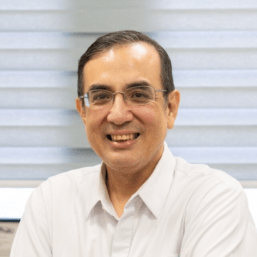ESPRESSO MORNINGS
By Joe Zaldarriaga

He was the architect behind Meralco’s most celebrated milestones in the field of communications— steering the company to five-time Company of the Year honors at the Philippine Quill Awards and leading the only PR team ever named Team of the Year in the history of the Anvil Awards.
Manong Joe’s leadership also extends as a respected member of the Board of Trustees for the Public Relations Society of the Philippines (PRSP), concurrent with his role as Chairman of the International Association of Business Communicators Philippines (IABC Philippines) where he also served as its President.
Manong Joe is a distinguished awardee of the medallion of honor and scroll of commendation from the University of Manila, owing to his years in public service as a communications professional. He shares his insights through columns in renowned publications, including The Philippine Star’s The Z Factor, and Philippine News Agency’s ESPRESSO MORNINGS.
As Filipinos continue to grapple with the magnitude of corruption hounding the country’s infrastructure projects, especially flood control, the government is turning to blockchain technology to ensure transparency in public spending—a step towards restoring public trust.
The Department of Public Works and Highways (DPWH) recently partnered with the Blockchain Council of the Philippines (BCP) to launch Integrity Chain, which is described as “a blockchain-powered platform designed to embed transparency, accountability, and public trust into national infrastructure projects.”
The Integrity Chain, according to the DPWH, aims to “transform infrastructure governance by offering a real-time public dashboard that tracks project spending and progress, enabling citizen feedback and anomaly reporting, and providing tamper-proof records to deter corruption.”
At its core, blockchain is a tamper-proof digital ledger. The IBM defines blockchain as “an immutable or unchangeable and tamper-proof digital ledger or record of all transactions within a network.”
For the government, this is not just about using new technology; it’s about ensuring that infrastructure spending can be publicly audited.
As DPWH Secretary Vince Dizon said: “From the budget process to the procurement process, to the award of the contract, to the implementation of the project, to the monitoring of the project, to the payments made to the contractors, to the acceptance of the project. Everyone should be watching now, everyone.”
The move is a welcome response to public outrage and the call for accountability over the widespread corruption that has hounded the country’s infrastructure spending. After all, the flood control scandal did not just waste public funds—it claimed lives, slowed down economic progress and eroded public trust.
Blockchain offers a way to slowly rebuild that trust not through empty promises but through accountability—ensuring that public spending is traceable and auditable, and that project progress is verifiable.
But while blockchain is a strong deterrent against corruption, it is not a cure-all for the ills plaguing our society. It can make corruption harder, but not necessarily impossible. It can expose anomalies but not motives. This is why, with all the revelations regarding widespread corruption, we Filipinos have all the more reasons to be vigilant on how public funds are used.
As the DPWH said, Integrity Chain enables citizen feedback and anomaly reporting, but it is up to us to use it. The technology is simply a tool—it is still up to us to call out discrepancies, demand explanations from officials, and ensure that data recorded is true and correct.
Transparency is only meaningful when people are empowered to act on what they see.
The launch of Integrity Chain is a step in the right direction, but its utilization must not be limited to the DPWH alone. Its utilization should be expanded to other agencies such as the Bureau of Customs and Bureau of Immigration, among others. In fact, the whole of government should adopt technologies that promote transparency and accountability.
And while technology is a huge help in ensuring that public funds are properly used, it is not enough to fix the country’s broken system. It must be supported with public vigilance, political will, and a commitment to justice.
In line with this, we should not allow the recent exposures of corruption in flood control projects to fade into obscurity. Everyone who benefited from and enabled the suffering of the Filipino people—from lawmakers to government officials and private contractors—should be made to face the full extent of the law.
It is our responsibility to continuously demand transparency and accountability from our government and public officials. We owe it to the victims of flooding whose suffering is continuously worsened by greed. We owe it to taxpayers who fund public projects. And we owe it to future generations who deserve a better country than we have today.


